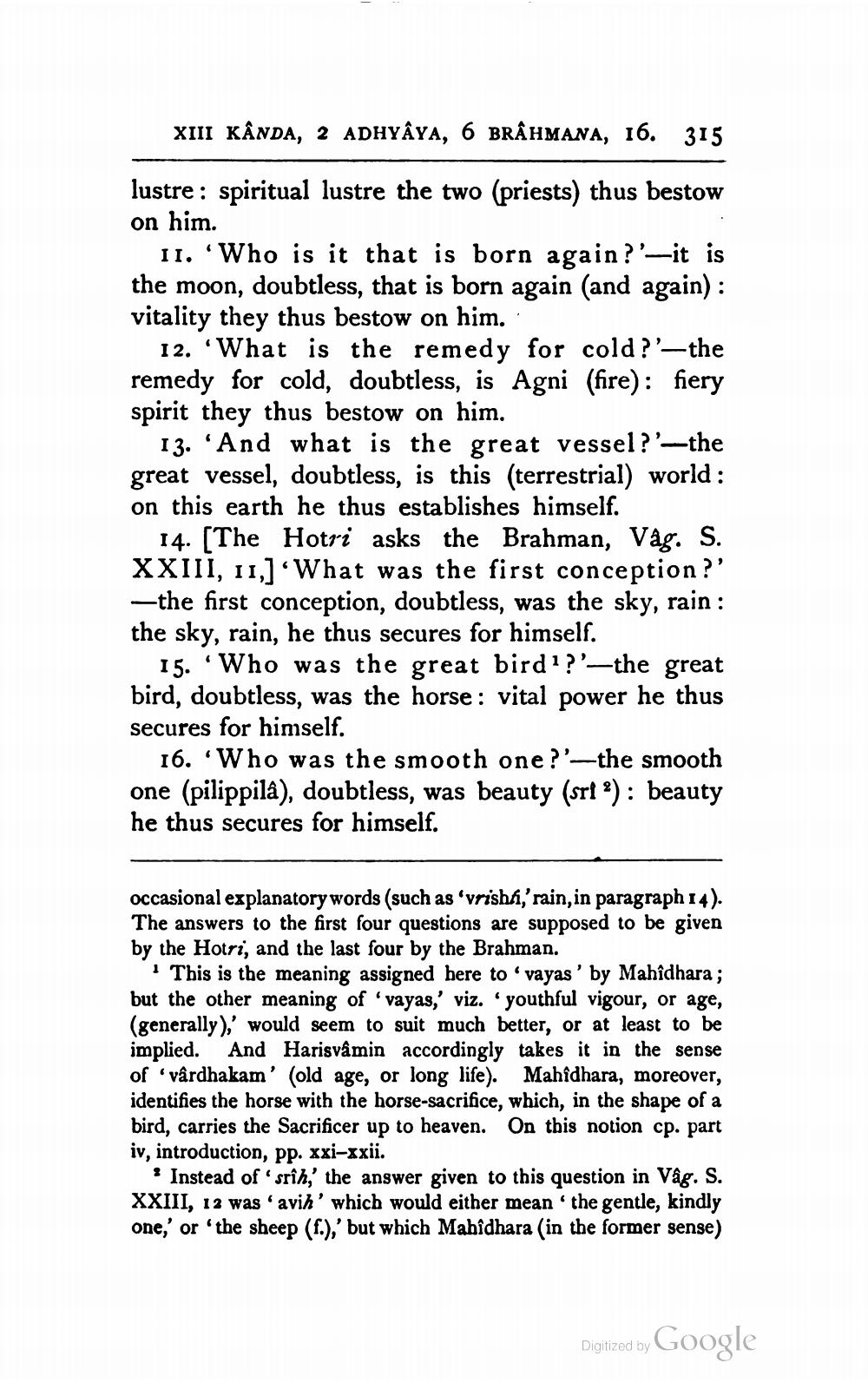________________
XIII KÂNDA, 2 ADHYAYA, 6 BRÂHMANA, 16. 315
lustre: spiritual lustre the two (priests) thus bestow on him.
11. Who is it that is born again?'-it is the moon, doubtless, that is born again (and again) : vitality they thus bestow on him.'
12. "What is the remedy for cold?'—the remedy for cold, doubtless, is Agni (fire): fiery spirit they thus bestow on him.
13. 'And what is the great vessel?'--the great vessel, doubtless, is this (terrestrial) world: on this earth he thus establishes himself.
14. [The Hotri asks the Brahman, Vâg. S. XXIII, 11,] “What was the first conception?'
—the first conception, doubtless, was the sky, rain: the sky, rain, he thus secures for himself.
15. Who was the great bird 1?'—the great bird, doubtless, was the horse: vital power he thus secures for himself.
16. Who was the smooth one?'--the smooth one (pilippila), doubtless, was beauty (srt 2): beauty he thus secures for himself.
occasional explanatory words (such as 'vrisha,' rain, in paragraph 14). The answers to the first four questions are supposed to be given by the Hotri, and the last four by the Brahman.
This is the meaning assigned here to vayas' by Mahîdhara; but the other meaning of 'vayas,' viz. 'youthful vigour, or age, (generally),' would seem to suit much better, or at least to be implied. And Harisvâmin accordingly takes it in the sense of vârdhakam' (old age, or long life). Mahîdhara, moreover, identifies the horse with the horse-sacrifice, which, in the shape of a bird, carries the Sacrificer up to heaven. On this notion cp. part iv, introduction, pp. xxi-xxii.
Instead of srîh,' the answer given to this question in Vâg. S. XXIII, 12 was 'avih' which would either mean the gentle, kindly one,' or 'the sheep (f.),' but which Mahîdhara (in the former sense)
Digitized by Google




